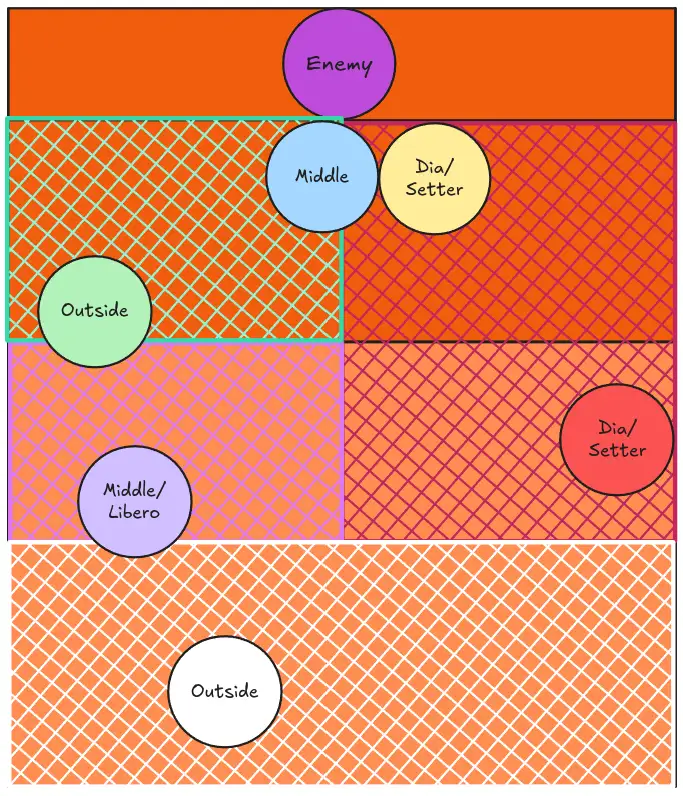Perimeter Defense
Introduction
Abschnitt betitelt „Introduction“In the hobby/mixed leagues, attacks are generally deeper in the field rather than very steep in the 3-meter zone.
For this reason, we also draw the defense a little deeper into the field.
The major weakness of this system is that the middle is always very open.
Therefore, special attention must be paid to tip balls.
First, the legend. It distinguishes between the players at the front (4, 3, 2) and the players in the backfield (5, 6, 1). The purple player is the opposing attacker. The area for which they are roughly responsible is also shaded in the same colors as the players.
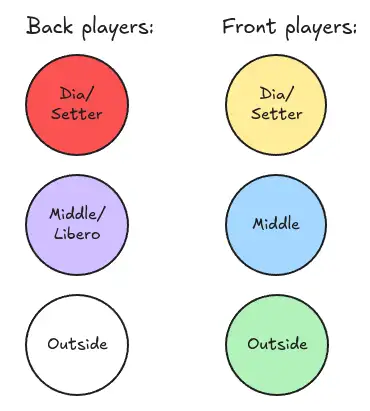
Attack from the Outside
Abschnitt betitelt „Attack from the Outside“When attacking from the outside, we leave the line open.
In our league, few hit down the line.
Most tipp the ball or hit diagonally.
Therefore, we close off the diagonal and position someone on the line to receive.
We cover the rest of the diagonal with the remaining players. Compared to the traditional system,
the front outside attacker moves significantly further into the backfield here. We assume that balls are rarely
hit so sharply into the diagonal.
The person in position 6, usually the back outside, is responsible for the balls hit through the block or tosses.
Positions 4 (outside), 5 (middle/libero), and 1 (opposite/setter) are responsible for the set balls into the middle.
Tall Setter/Opposite
Abschnitt betitelt „Tall Setter/Opposite“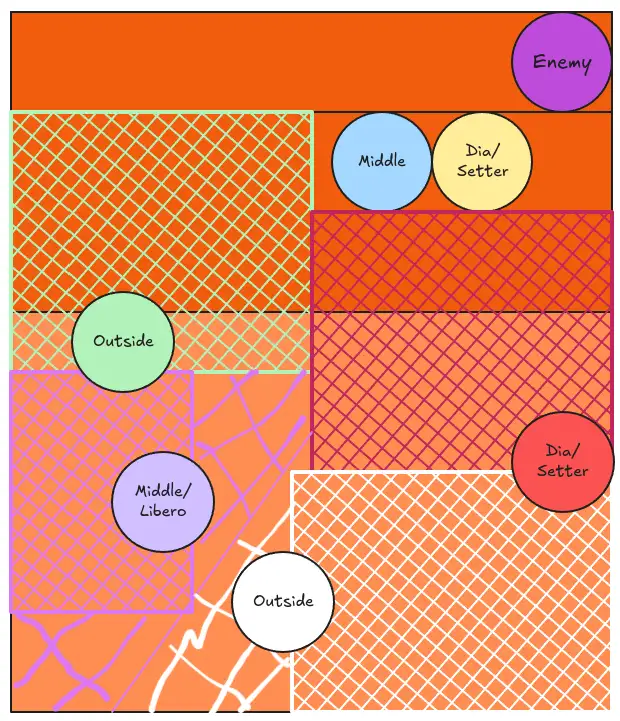
Short Setter/Opposite
Abschnitt betitelt „Short Setter/Opposite“If the setter or opposite at the front is short and an attempt to block would not be sensible or could even
lead to injuries, it would be better to pull this player out a bit to cover tip balls.
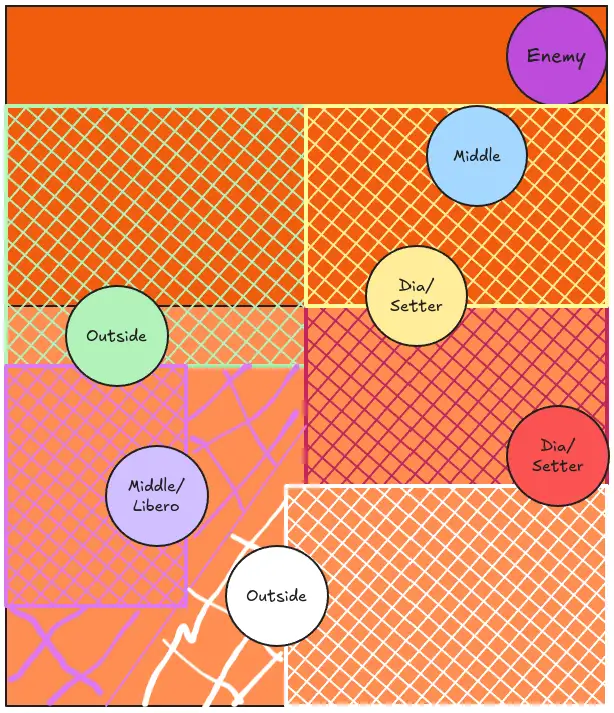
Attack from Diagonal
Abschnitt betitelt „Attack from Diagonal“In this situation, the defense looks inverse to the situation when the attack comes from the outside.
Tall Outside
Abschnitt betitelt „Tall Outside“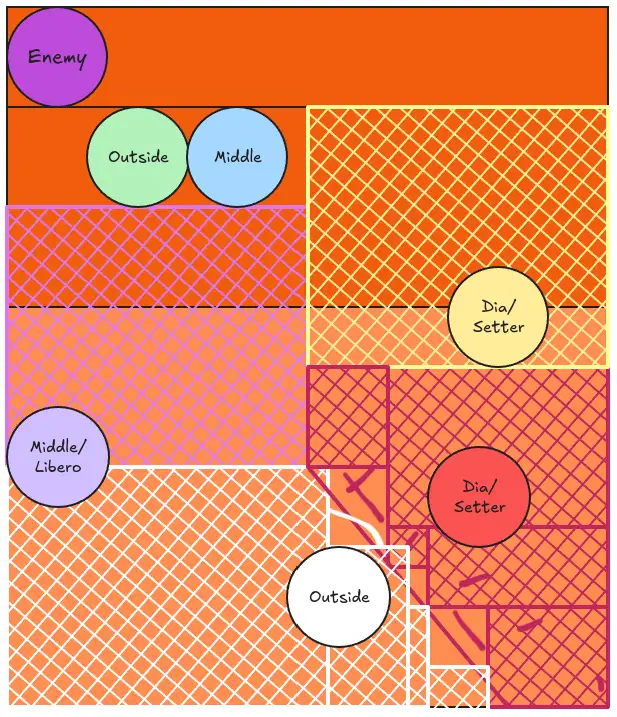
Short Outside
Abschnitt betitelt „Short Outside“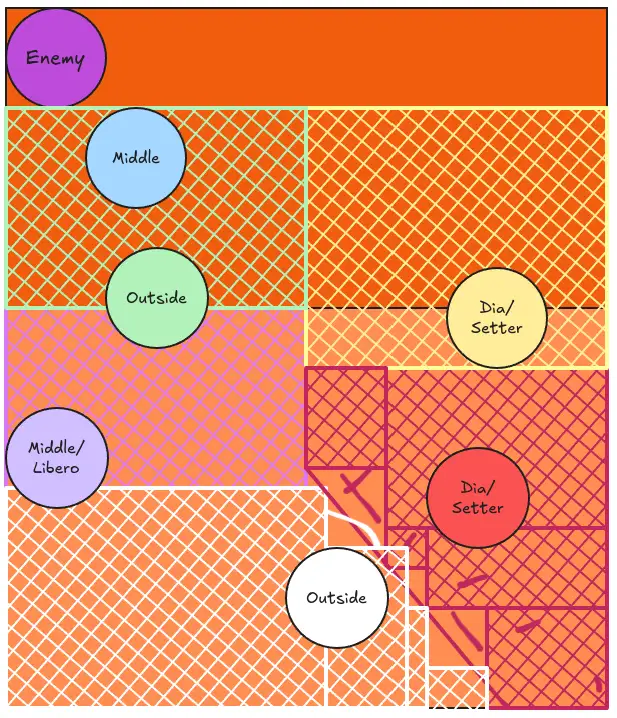
Middle attack
Abschnitt betitelt „Middle attack“The middle is a bit tricky. Sometimes the attacks are so fast that you can only get one block up.
We should, however, ensure that we always get two blocks up.
Only the Middle blocks
Abschnitt betitelt „Only the Middle blocks“This situation occurs when the attack is too fast or when both the outside and opposite/setter are too small to block. In this case, the middle blocker prefers one side, and the outside on position 6 must align accordingly.
Middle blocks more to the left
Abschnitt betitelt „Middle blocks more to the left“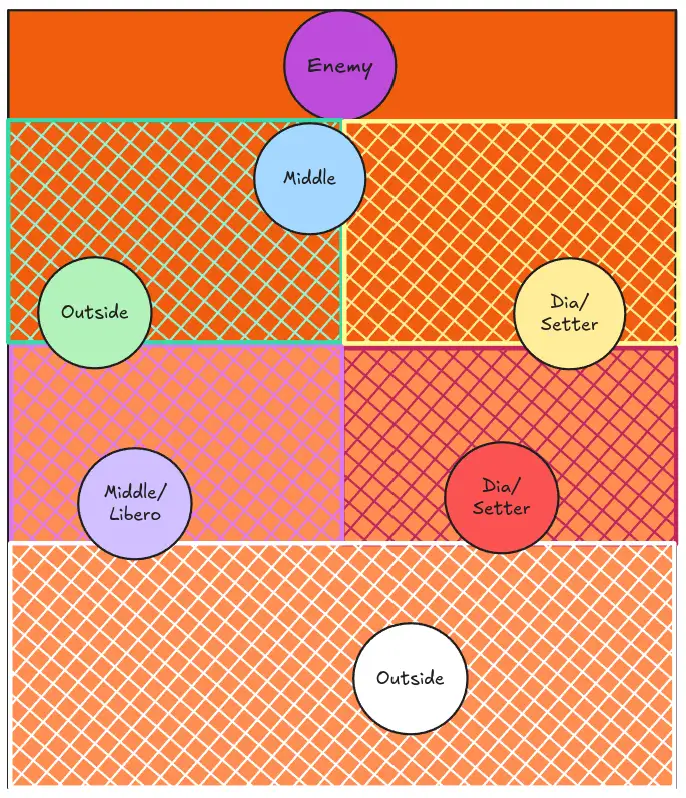
Middle blocks more to the right
Abschnitt betitelt „Middle blocks more to the right“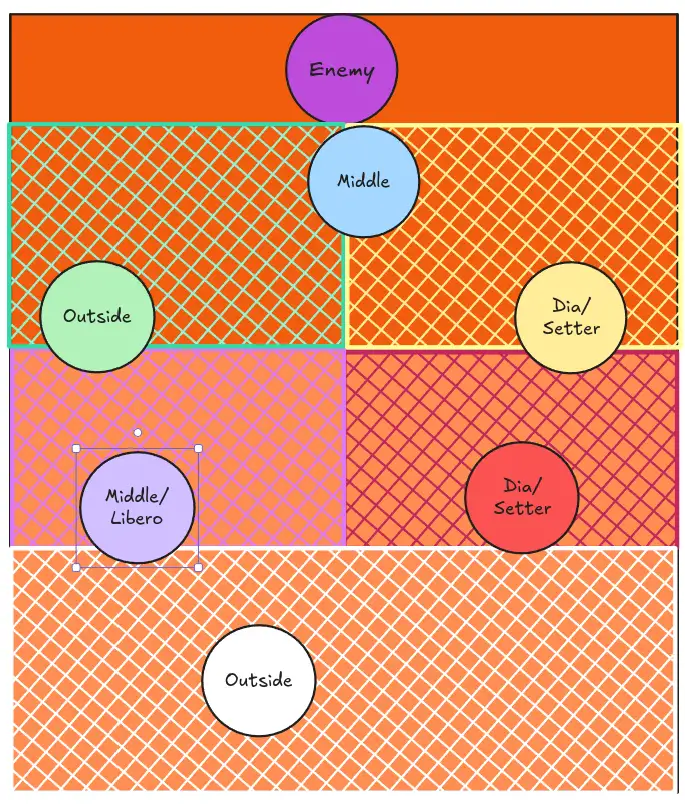
Middle and Outside block
Abschnitt betitelt „Middle and Outside block“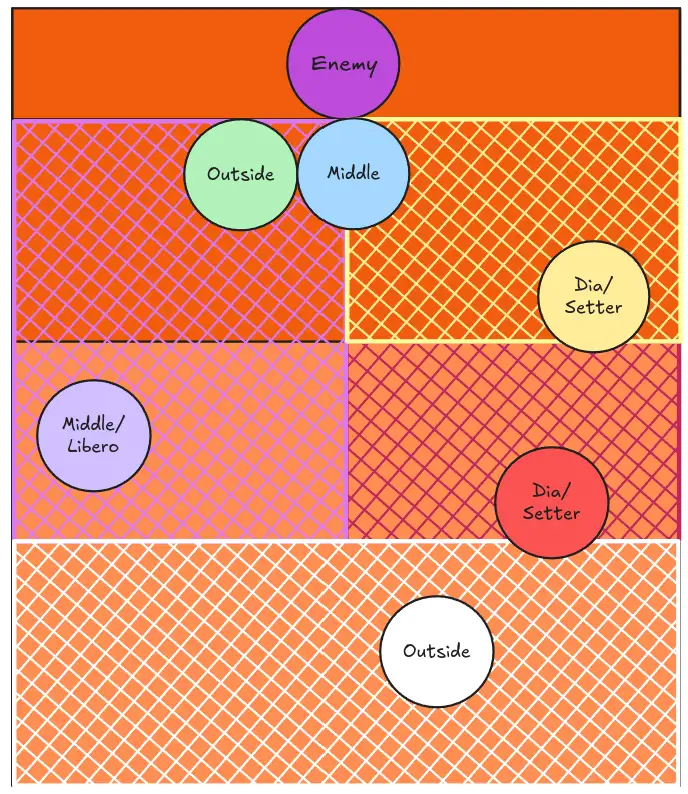
Middle and Opposite block
Abschnitt betitelt „Middle and Opposite block“